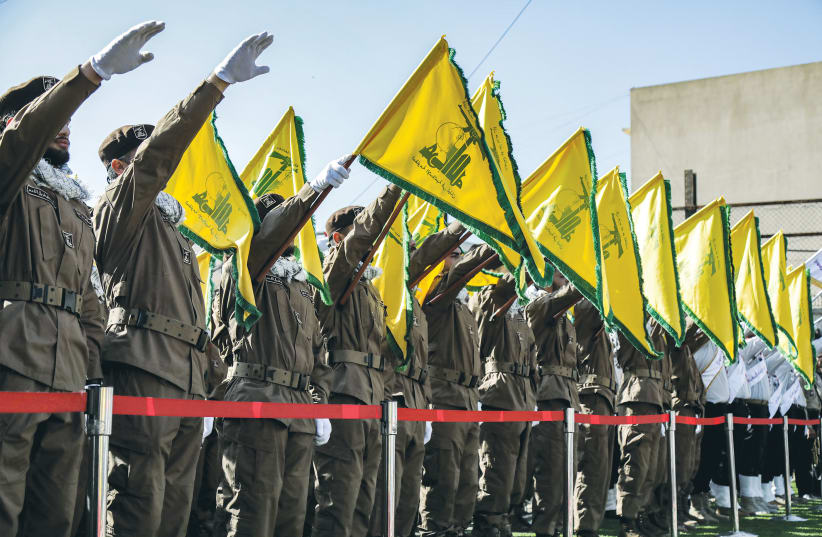ARTICLE AD BOX
In KfarKela and in a variety of other villages, Hezbollah forces started to try to enter areas that the IDF has defined as no-go zones for them.
By YONAH JEREMY BOB NOVEMBER 27, 2024 13:31 HEZBOLLAH OPERATIVES salute during the funeral of comrades killed in an Israeli strike, in Shehabiya, south Lebanon, April 17.
(photo credit: AFP VIA GETTY IMAGES)
HEZBOLLAH OPERATIVES salute during the funeral of comrades killed in an Israeli strike, in Shehabiya, south Lebanon, April 17.
(photo credit: AFP VIA GETTY IMAGES)
Within hours of the Israel-Lebanon ceasefire going into effect, Hezbollah was already testing the IDF’s reactions to violations.
In KfarKela and in a variety of other villages, Hezbollah forces started to try to enter areas that the IDF has defined as no-go zones for them.
So far, the IDF has used warning shots to “convince” these violators to turn around, and that has worked.
But a short time after the IDF announced its warning shot responses, Defense Minister Israel Katz said this was insufficient.
Katz said that if Hezbollah violators are unarmed but moving where they should not be they must be arrested, and that if there is even a hint of them presenting a danger, they should be shot and killed.
Following Katz’s statement, IDF sources respectfully disagreed.
According to the sources, each case must be looked at based on the specific circumstances.
Also, the general tone of violations and respecting the ceasefire deal has an impact, said the sources.
Who will call the shots on this?
IDF Chief of Staff Lt-Gen. Herzi Halevi? Katz? Mid-level lieutenant colonels and other commanders in the field? Prime Minister Benjamin Netanyahu himself?
Stay updated with the latest news!
Subscribe to The Jerusalem Post Newsletter
This is for lighter violations.
If Hezbollah seems to be trying to carry out a more dangerous violation with more forces or more powerful weaponry, such as rockets or drones, when will the IDF shoot bullets, shells, and missiles from the air?
There does not seem to be agreement on a lot of these issues and while the political echelon is supposed to make broad policy, some of these rules of engagement questions are traditionally decided by the army, and some by commanders in the field who are closest to the complex dilemmas in question.
IDF sources said they will sternly enforce the deal, but on the other hand they do not want to blow up the deal over a small violation.
This sets up enforcement as a gray area from the start.
Another gray area is Iranian weapons smuggling from the air using civilian aircraft.
The Jerusalem Post has repeatedly asked top defense sources how Israel will know when a civilian aircraft is bringing weapons to Hezbollah.
Sometimes it might know, and sometimes it might not. And if it does know or if it has suspicions, will Israel for sure shoot down a civilian aircraft? If the aircraft lands, will it bomb it then or try to learn more on the ground while taking the risk that during that time, the weapons might disappear?
Cross-border smuggling from Syria
There are also questions about cross-border smuggling from Syria, but the IDF knew how to handle this problem even before the current war, and continuing attacks there by the IDF will not be perceived as violating the ceasefire deal.
Smuggling from the air has always been trickier for the IDF to stop.
All of this is only one side of the new reality in the North that is being shaped, but it is an important one, and Jerusalem needs to formulate a clear and consistent policy that works.

 2 months ago
113
2 months ago
113








 English (US) ·
English (US) ·